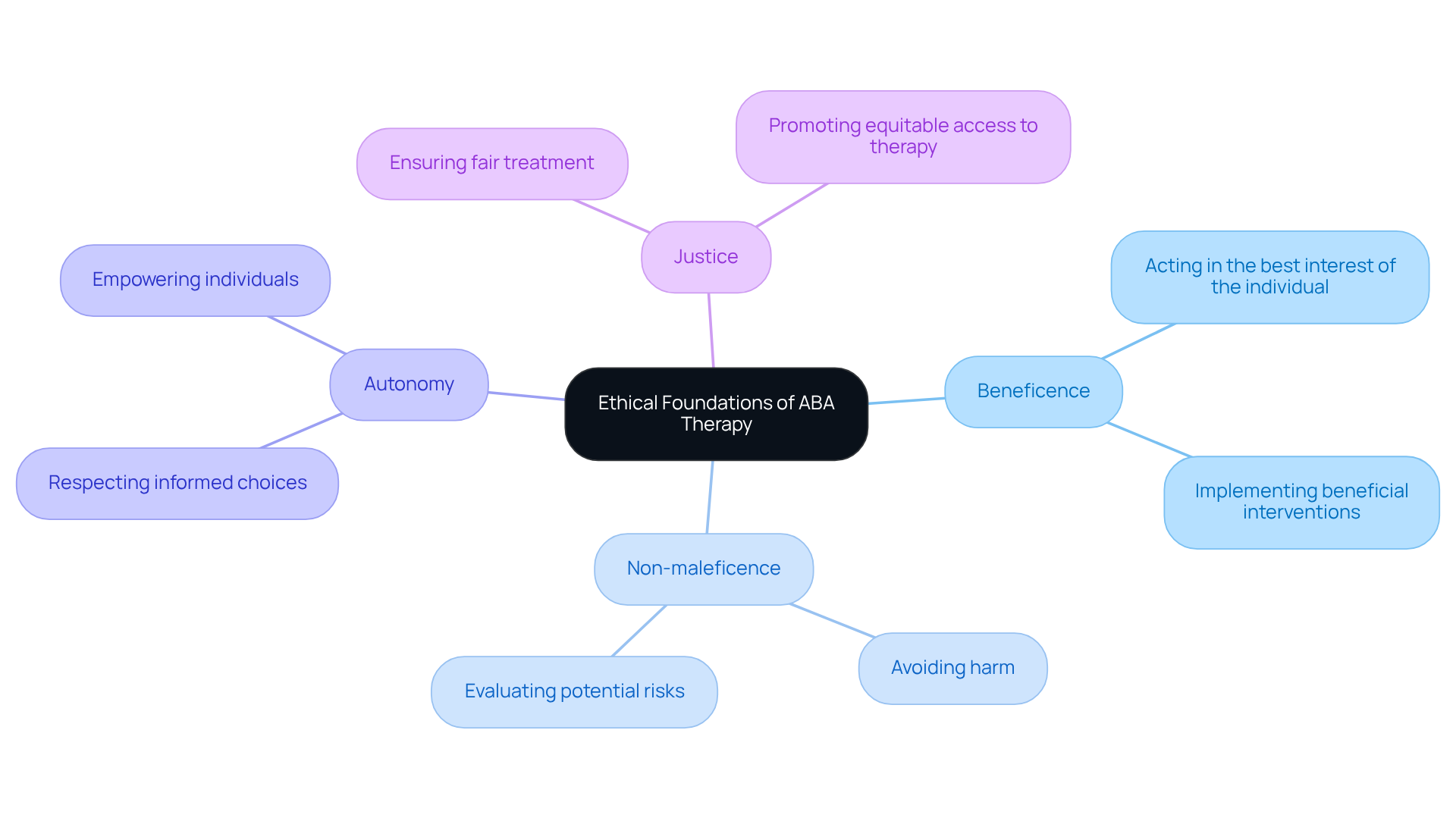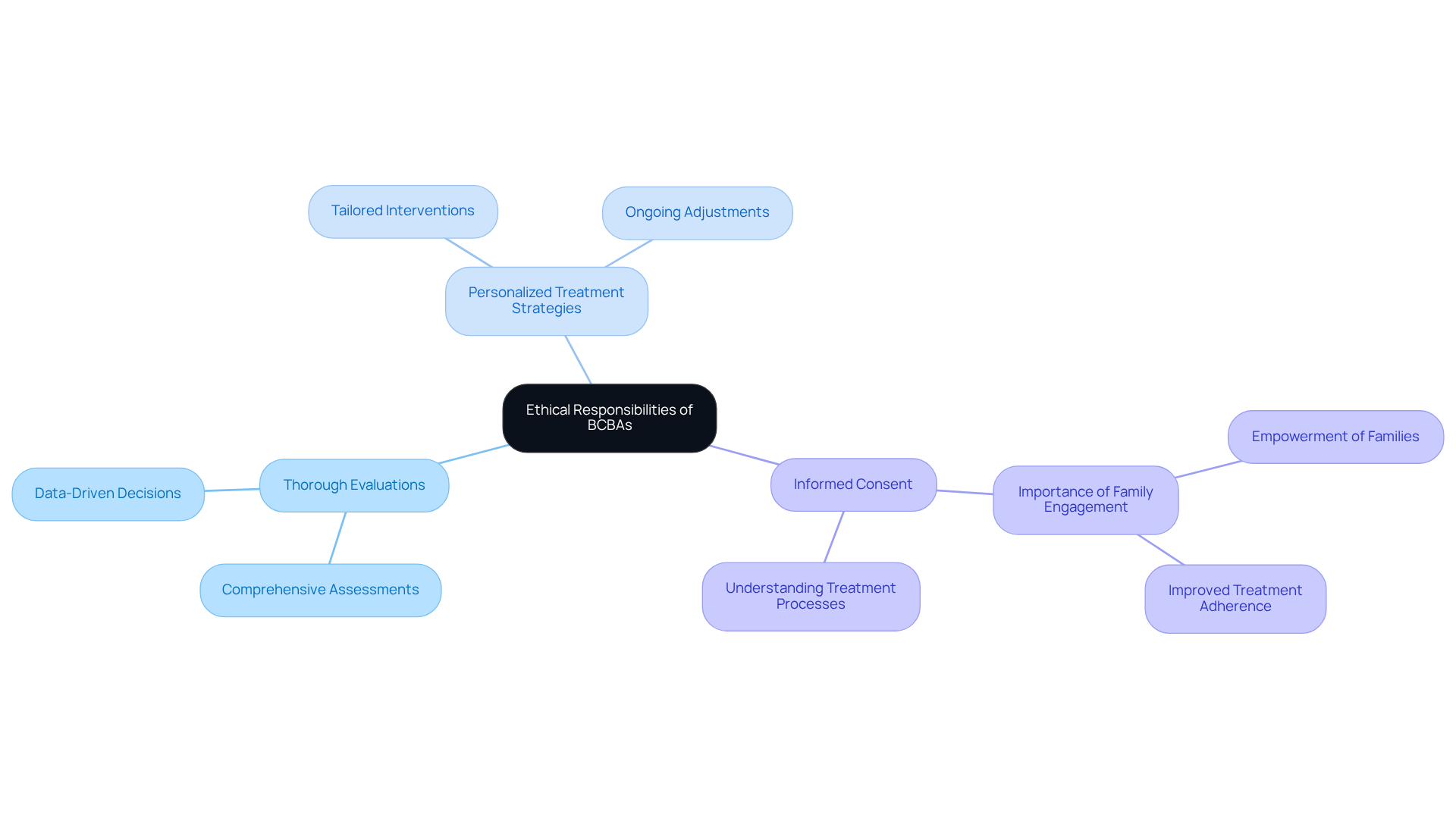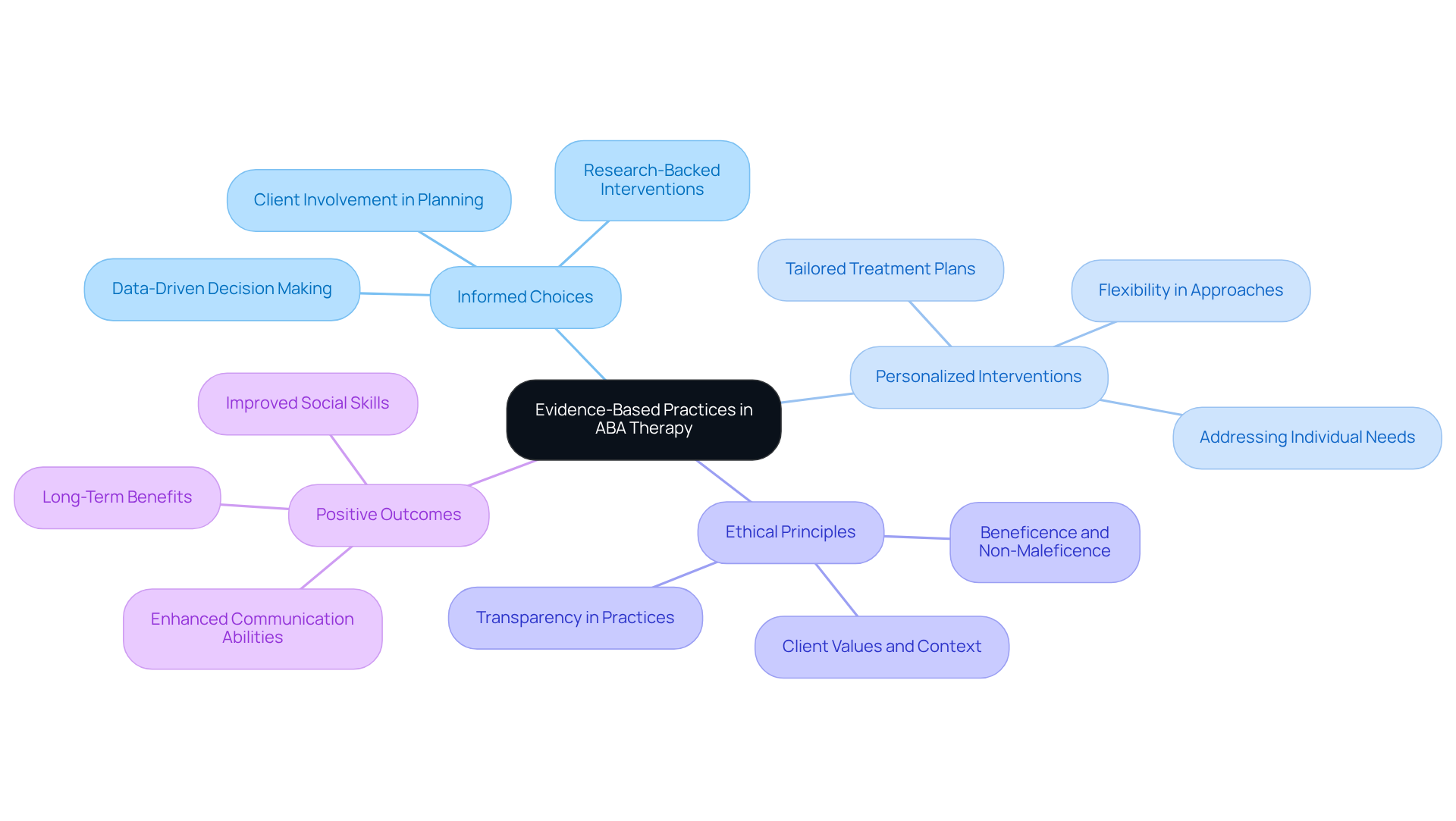Applied Behavior Analysis (ABA) is viewed as ethical because it’s built on principles like beneficence, non-maleficence, autonomy, and justice. These principles really prioritize the well-being and rights of individuals receiving therapy. By sticking to these ethical standards, we can create a therapeutic environment that not only enhances outcomes but also builds trust with families. This way, interventions become both effective and compassionate.
Let’s explore this together! When we think about how these principles work in practice, it’s clear they help foster a sense of safety and care. Families can feel confident knowing that their loved ones are treated with respect and kindness. It’s all about ensuring that every step taken is in the best interest of those we serve.
We’re here to help you every step of the way! By understanding the ethical framework of ABA, parents can feel more connected and supported in their journey. So, let’s keep this conversation going—your thoughts and experiences matter!
In the world of behavioral therapy, the ethical foundations of Applied Behavior Analysis (ABA) are more than just theoretical concepts; they are vital principles that help practitioners provide effective care. By focusing on beneficence, non-maleficence, autonomy, and justice, ABA professionals not only protect the dignity of individuals with autism but also improve therapeutic outcomes.
But let’s pause for a moment: how can sticking to these ethical standards truly change the experiences of clients and their families? And what challenges might pop up in ensuring these principles are consistently applied? Exploring these questions can really highlight the significant impact of ethical practices in ABA therapy. Let’s explore this together!
The moral foundations of Applied Behavior Analysis (ABA) therapy, which is ABA ethical, are rooted in some core principles that guide practitioners in their decision-making. These principles include:
By adhering to these ethical standards, ABA practitioners create a therapeutic environment that is ABA ethical, prioritizing the dignity and rights of individuals with autism and leading to more effective and compassionate care.
For example, the principle of beneficence encourages behavior analysts to implement interventions that promote positive outcomes, making sure that the strategies used are beneficial to the individual. On the flip side, non-maleficence urges practitioners to carefully evaluate the potential risks associated with any treatment, protecting individuals from harm. This moral framework not only safeguards clients but also demonstrates that ABA therapy is ABA ethical, enhancing its credibility and effectiveness as a whole. By weaving these moral principles into their practice, behavior analysts can achieve significant outcomes for children with autism and their families. It really emphasizes the importance of principled practice in this field. Let’s explore this together!

Board Certified Behavior Analysts (BCBAs) have a significant moral responsibility to align their practices with established guidelines. This means:
Informed consent isn’t just a checkbox; it’s a vital part of responsible ABA therapy, making sure that everyone understands the treatment processes and what they entail.
Did you know that many families feel more empowered and engaged when informed consent is prioritized? Studies show that when families are involved in the consent process, they tend to stick to treatment plans and report better outcomes. It’s all about working together!
BCBAs also respect confidentiality and uphold the dignity of those they serve throughout the therapeutic journey. They play a crucial role in overseeing and training Registered Behavior Technicians (RBTs), ensuring that everyone on the team meets professional standards. This commitment to principled practice not only safeguards the well-being of those they support but also demonstrates that effective practice is ABA ethical. For example, when a BCBA emphasizes informed consent, it fosters a collaborative relationship with families, encouraging them to actively participate in their child’s treatment journey, which is ABA ethical and can lead to improved therapeutic outcomes.
Let’s explore this together! Your involvement can make a real difference.

Evidence-based practices (EBPs) play a vital role in principled ABA treatment, providing a structured framework that helps practitioners make informed choices based on the best available research. By using EBPs, interventions become not only effective but also personalized to meet each client's unique needs, all while adhering to the principles of beneficence and non-maleficence.
Imagine a Board Certified Behavior Analyst (BCBA) selecting an intervention backed by solid empirical evidence. This thoughtful choice significantly boosts the chances of achieving positive outcomes while keeping potential harm at bay. Practitioners enhance the credibility of ABA practices and build trust with families by committing to evidence-based interventions, which is ABA ethical. Prioritizing EBPs is ABA ethical because it ensures that behavior analysts fulfill their moral obligations, delivering high-quality care that supports the well-being of children with autism and fosters their development and independence.
Let’s explore this together! By understanding the importance of EBPs, we can work towards ensuring the best outcomes for our children. We’re here to help you every step of the way!

The influence of moral practices on patient results in ABA therapy is aba ethical and significant. When professionals adhere to moral standards, individuals are more likely to experience positive behavioral transformations, improved social skills, and an enhanced overall quality of life. Practices that are aba ethical, like obtaining informed consent and respecting autonomy, create a therapeutic environment where individuals feel valued and understood.
At Rori Care, our clinical leadership team is dedicated to embracing neurodiversity and helping children thrive through personalized developmental plans. Research shows that clients engaged in ABA therapy grounded in moral principles demonstrate greater involvement in treatment and more substantial progress toward their goals. For instance, studies indicate that children whose therapists prioritize moral considerations, such as dignity and respect, exhibit higher levels of cooperation and motivation during sessions. This connection underscores the vital role of moral adherence in achieving meaningful and lasting outcomes for individuals with autism and their families.
Did you know that around 90% of children on the autism spectrum achieve significant progress through ABA interventions, especially when principled practices are emphasized? Moreover, principled ABA therapy has been shown to reduce problematic behaviors in as many as 80% of children with ASD, highlighting its effectiveness in fostering positive behavioral changes. By prioritizing ethical standards, ABA practitioners demonstrate that their approach is aba ethical, which not only enhances client outcomes but also contributes to a more inclusive and supportive therapeutic environment.
Ready to take the first step toward a brighter future for your child? Let’s explore this together! Sign up for a free consultation at Rori Care, where our compassionate experts will tailor a developmental plan to support your child's unique needs.
The ethical foundations of Applied Behavior Analysis (ABA) therapy are so important for ensuring that practitioners provide compassionate and effective care to individuals with autism. By embedding principles like beneficence, non-maleficence, autonomy, and justice into their practices, ABA professionals not only protect the dignity and rights of their clients but also boost the overall effectiveness of the therapy. This commitment to ethical standards is what makes ABA therapy a trustworthy and impactful approach in supporting individuals and their families.
Throughout this article, we’ve highlighted the responsibilities of Board Certified Behavior Analysts (BCBAs) in conducting thorough evaluations, obtaining informed consent, and using evidence-based practices. These elements are essential for fostering collaborative relationships with families and ensuring that treatment plans are tailored to meet the unique needs of each child. When ethical practices are emphasized, we see a direct correlation with improved client outcomes, showcasing the transformative potential of principled ABA therapy.
Reflecting on the significance of these ethical standards, it’s clear they are not just guidelines but foundational elements that drive positive change in the lives of individuals with autism. By prioritizing ethics in ABA therapy, practitioners can create an inclusive and supportive environment that truly empowers clients and their families. This commitment to ethical practice enhances therapeutic effectiveness and sets a standard for quality care in the field. Engaging with these principles is essential for anyone involved in ABA therapy—whether as a practitioner, a family member, or a supporter—because together, we can ensure a brighter future for individuals on the autism spectrum. Let’s explore this journey together!
What are the core ethical principles of ABA therapy?
The core ethical principles of Applied Behavior Analysis (ABA) therapy include beneficence, non-maleficence, autonomy, and justice.
What does the principle of beneficence entail in ABA therapy?
Beneficence highlights the importance of acting in the best interest of the individual, ensuring that interventions promote positive outcomes.
How does non-maleficence apply to ABA therapy?
Non-maleficence focuses on avoiding harm by carefully evaluating the potential risks associated with any treatment to protect individuals from harm.
What is the significance of autonomy in ABA therapy?
Autonomy respects the individual's right to make informed choices, allowing them to have a say in their treatment.
How does the principle of justice relate to ABA therapy?
Justice ensures fair treatment for everyone, promoting equality and fairness in the therapeutic process.
How do these ethical principles contribute to ABA therapy?
By adhering to these ethical standards, ABA practitioners create a therapeutic environment that prioritizes the dignity and rights of individuals with autism, leading to more effective and compassionate care.
Why is principled practice important in ABA therapy?
Principled practice is important because it safeguards clients and enhances the credibility and effectiveness of ABA therapy, ultimately achieving significant outcomes for children with autism and their families.